Amazon creates ‘anti-robot vests’ to protect workers from droid collisions
Hi-tech system is introduced a month after 24 workers are injured at one of the firm’s warehouses in the US
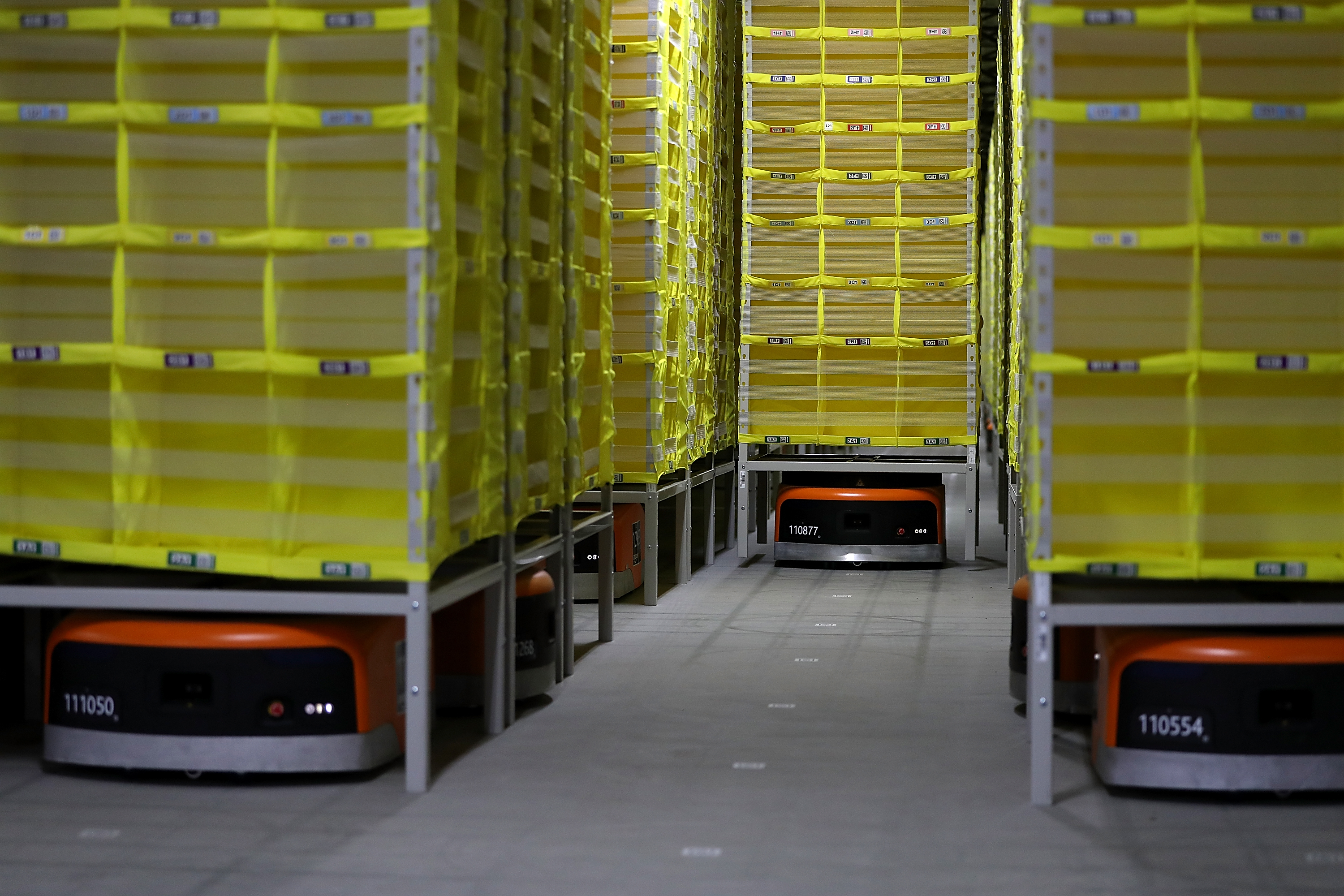
A free daily email with the biggest news stories of the day – and the best features from TheWeek.com
You are now subscribed
Your newsletter sign-up was successful
Amazon has developed a new hi-tech safety vest for its employees in a bid to reduce robot-related injuries at its warehouses.
The Robotic Tech Vest (RTV) has been specially designed to make the online retail giant’s workers more visible to the firm’s 100,000-strong army of robots.
The “anti-robot vests”, which resemble utility belts, are equipped with sensors that send alerts to the robots when a human is in the vicinity, says The Daily Telegraph.
The Week
Escape your echo chamber. Get the facts behind the news, plus analysis from multiple perspectives.

Sign up for The Week's Free Newsletters
From our morning news briefing to a weekly Good News Newsletter, get the best of The Week delivered directly to your inbox.
From our morning news briefing to a weekly Good News Newsletter, get the best of The Week delivered directly to your inbox.
Amazon’s robots operate in cordoned-off areas where they pick and pack shelves of goods, says The Verge. But some staff are required to enter these areas if a droid breaks down or if an item is accidentally dropped.
According to the US Department of Labor, most accidents involving humans and robots occur during “non-routine operating conditions”, such as machine maintenance or when a staff member retrieves a hazardous item from the robot’s operating area.
Twenty four workers at Amazon’s New Jersey warehouse were hospitalised last month after a robot ran over and ruptured an aerosol can of bear repellent that had strayed into its operating area.
The new vests, which are designed for droid-only areas, are aimed at helping workers carry out maintenance and collect fallen items more safely.
A free daily email with the biggest news stories of the day – and the best features from TheWeek.com
Speaking to TechCrunch, Brad Porter, vice president of Amazon Robotics, said the RTVs would help the robot detect a human from far away and “smartly update its travel plan to steer clear”.
Amazon has begun distributing its RTVs to workers in more than 25 of its facilities and says the vests are a resounding success.
The robots have already amassed more than one million “unique activations” – where the droid is alerted to a human in its vicinity – since the RTVs were first rolled out last year, says Porter.
-
 How the FCC’s ‘equal time’ rule works
How the FCC’s ‘equal time’ rule worksIn the Spotlight The law is at the heart of the Colbert-CBS conflict
-
 What is the endgame in the DHS shutdown?
What is the endgame in the DHS shutdown?Today’s Big Question Democrats want to rein in ICE’s immigration crackdown
-
 ‘Poor time management isn’t just an inconvenience’
‘Poor time management isn’t just an inconvenience’Instant Opinion Opinion, comment and editorials of the day
-
 The robot revolution
The robot revolutionFeature Advances in tech and AI are producing android machine workers. What will that mean for humans?
-
 How the online world relies on AWS cloud servers
How the online world relies on AWS cloud serversThe Explainer Chaos caused by Monday’s online outage shows that ‘when AWS sneezes, half the internet catches the flu’
-
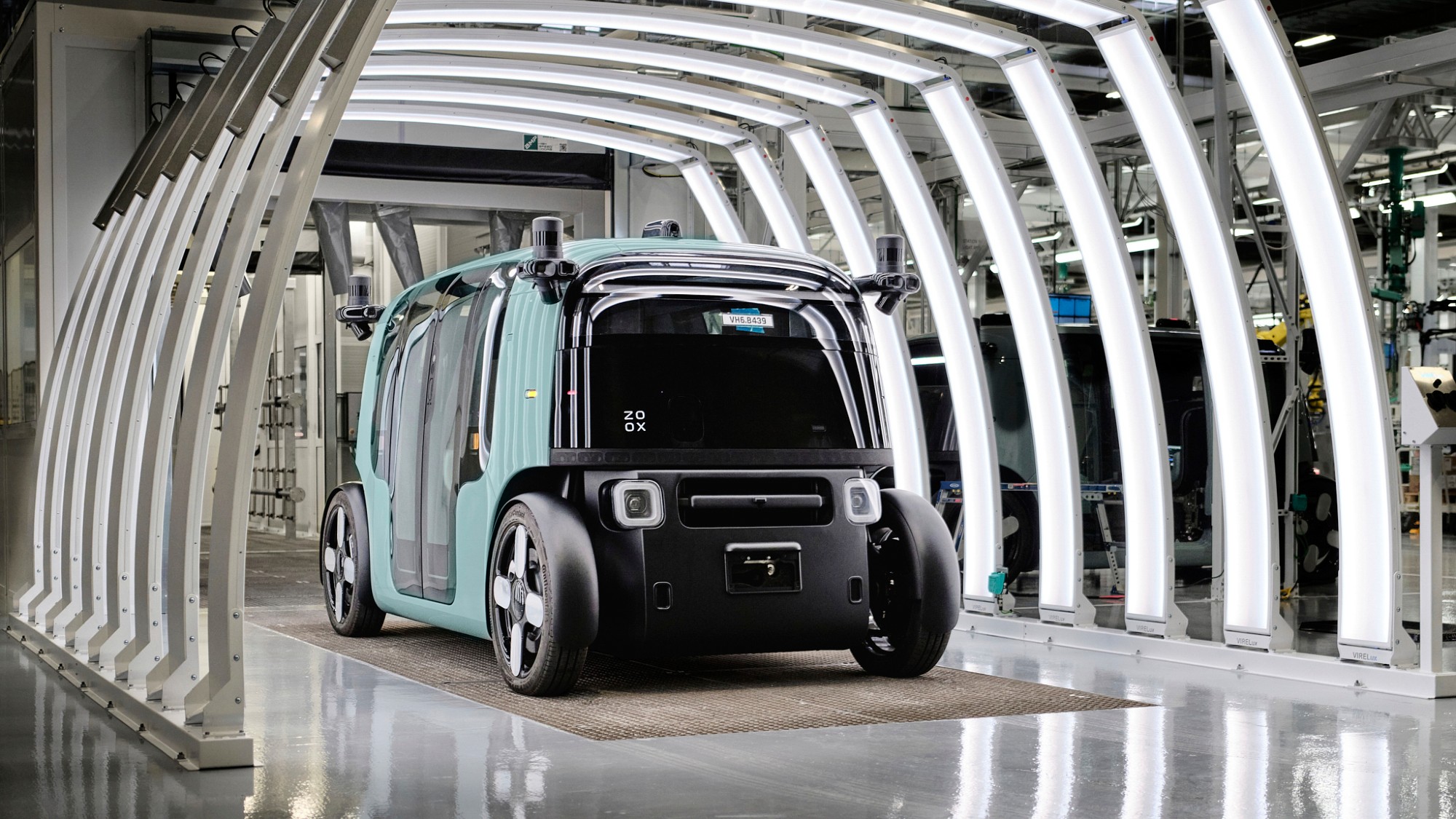 Amazon's robotaxi looks to be Waymo's biggest competitor
Amazon's robotaxi looks to be Waymo's biggest competitorIn the Spotlight The company recently opened a new robotaxi production plant in California
-
 Secret AI experiment on Reddit accused of ethical violations
Secret AI experiment on Reddit accused of ethical violationsIn the Spotlight Critics say the researchers flouted experimental ethics
-
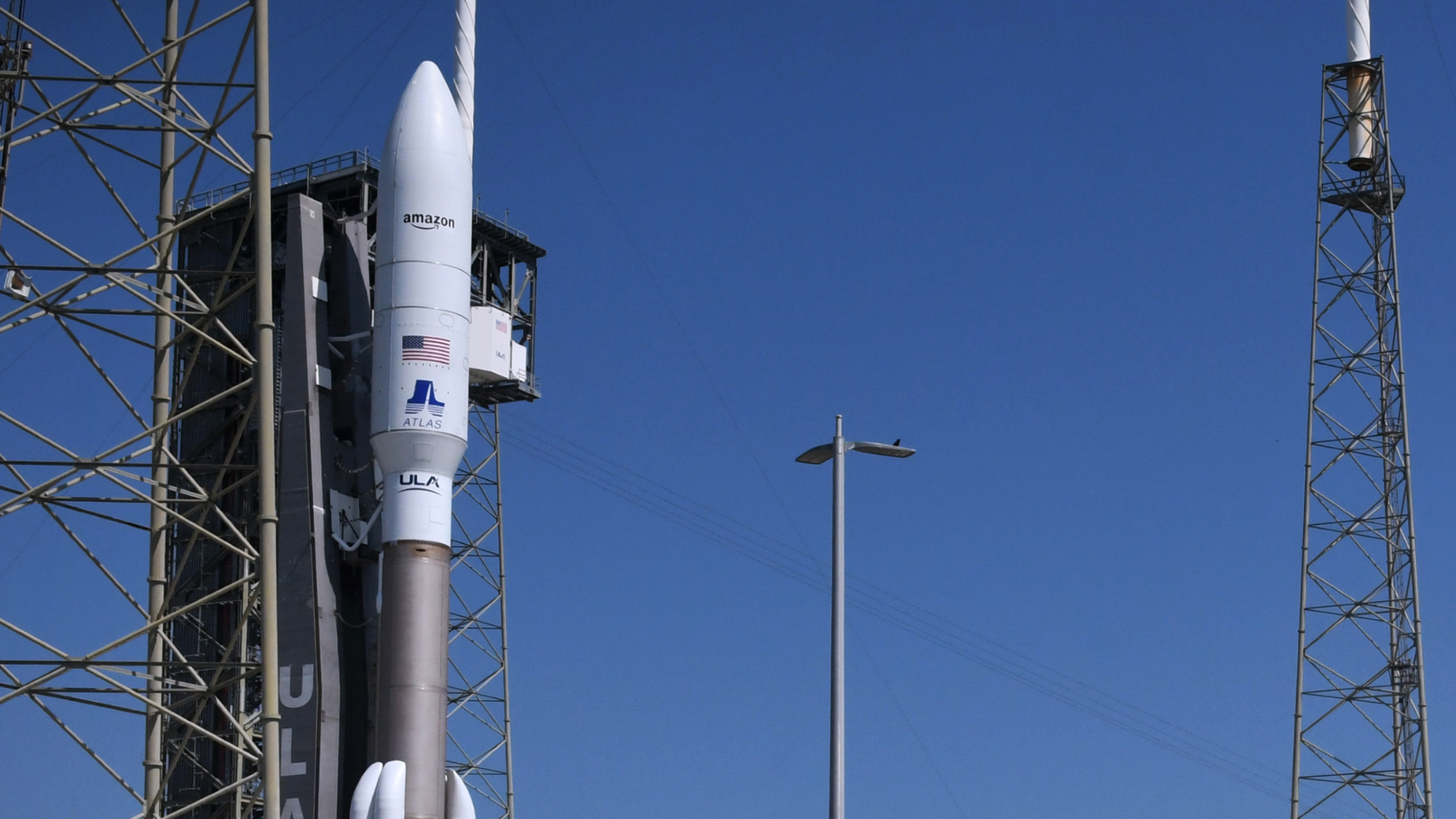 Amazon launches 1st Kuiper internet satellites
Amazon launches 1st Kuiper internet satellitesSpeed Read The battle of billionaires continues in space
-
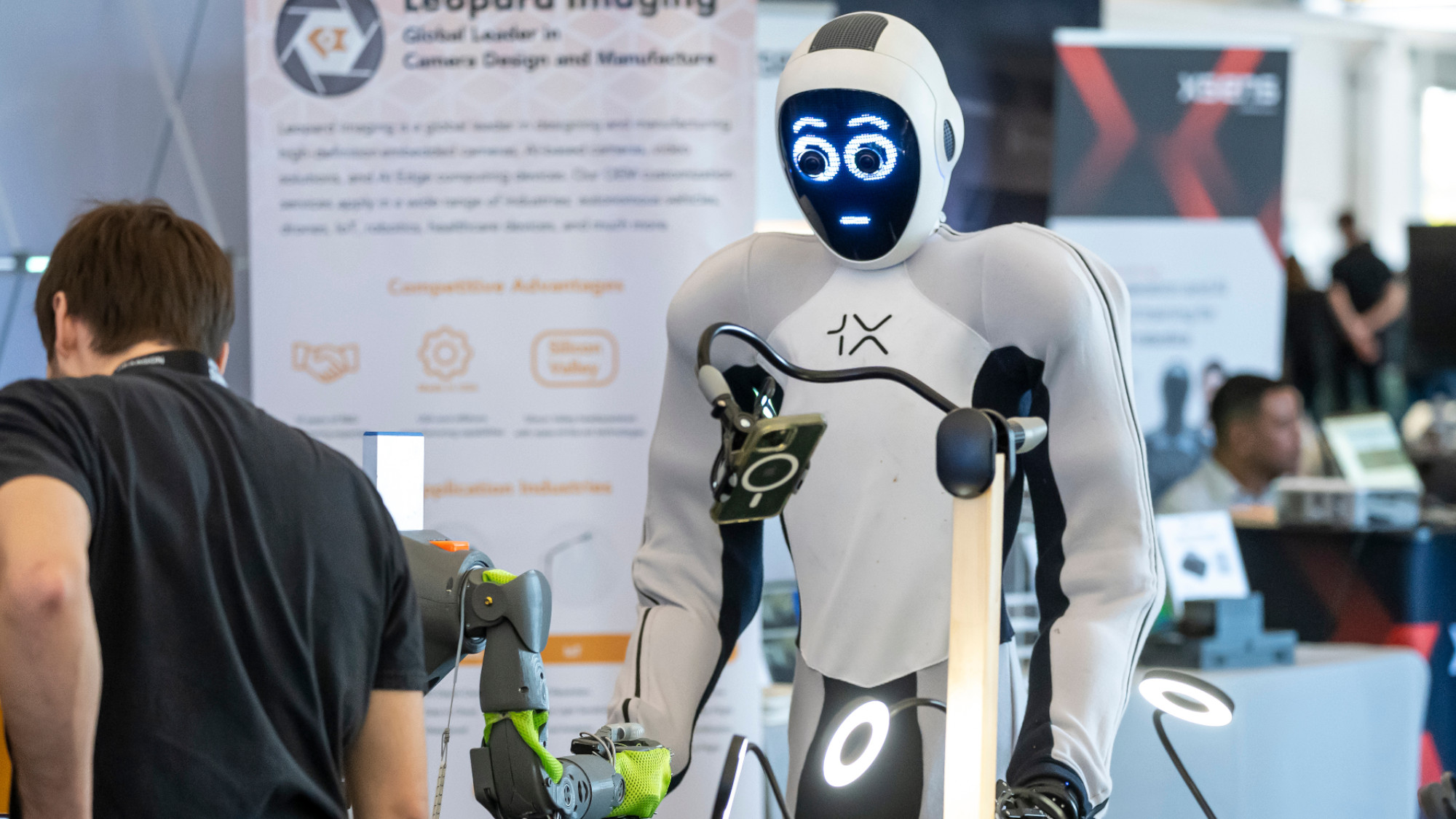 Space-age living: The race for robot servants
Space-age living: The race for robot servantsFeature Meta and Apple compete to bring humanoid robots to market
-
 Is the world ready for Tesla's new domestic robots?
Is the world ready for Tesla's new domestic robots?Talking Points The debut of Elon Musk's long-promised "Optimus" at a Tesla event last week has renewed debate over the role — and feasibility — of commercial automatons
-
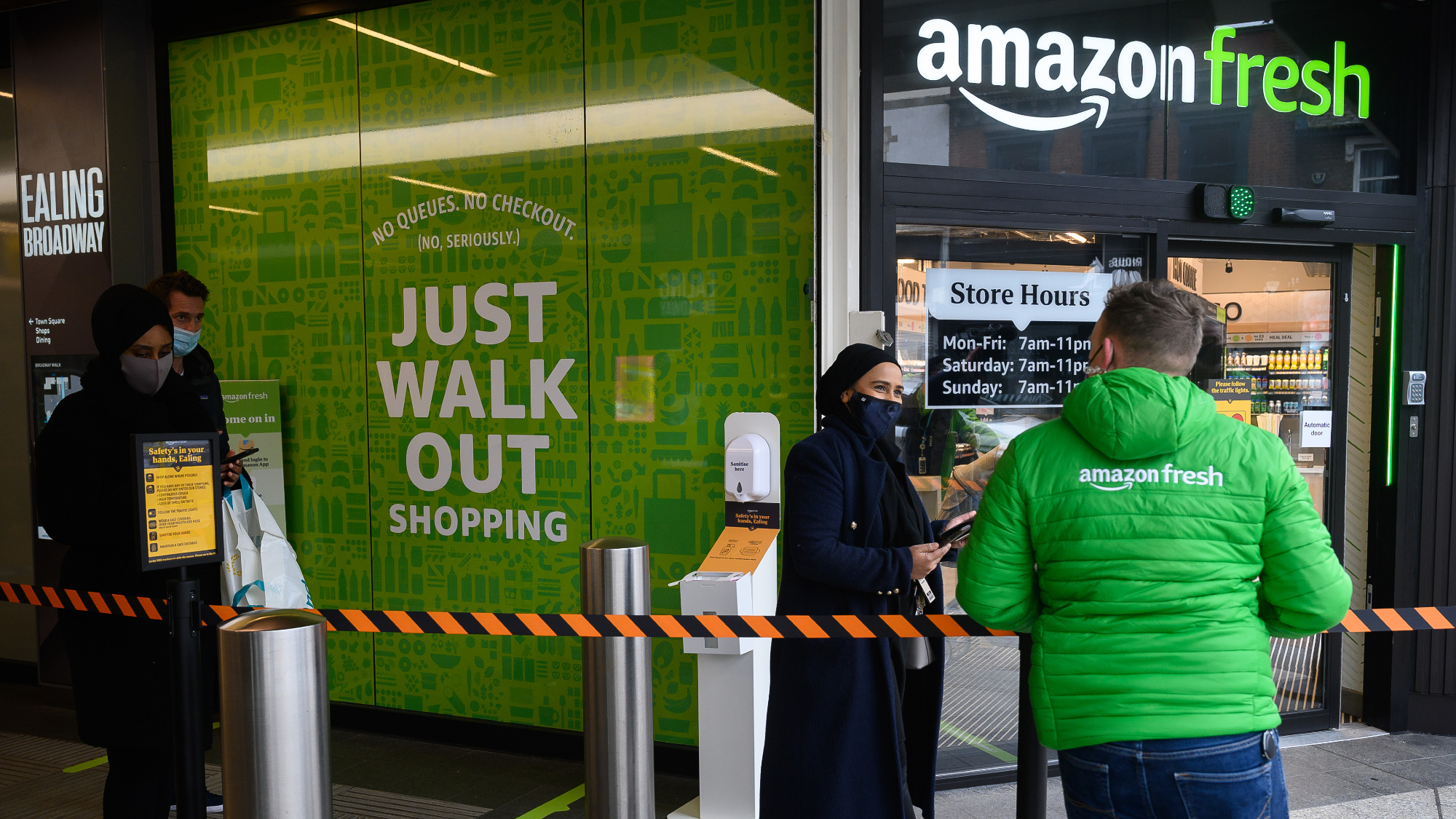 Amazon ending 'Just Walk Out' grocery checkout
Amazon ending 'Just Walk Out' grocery checkoutSpeed Read In its place, the company will let customers scan while they shop with Amazon Dash Cart